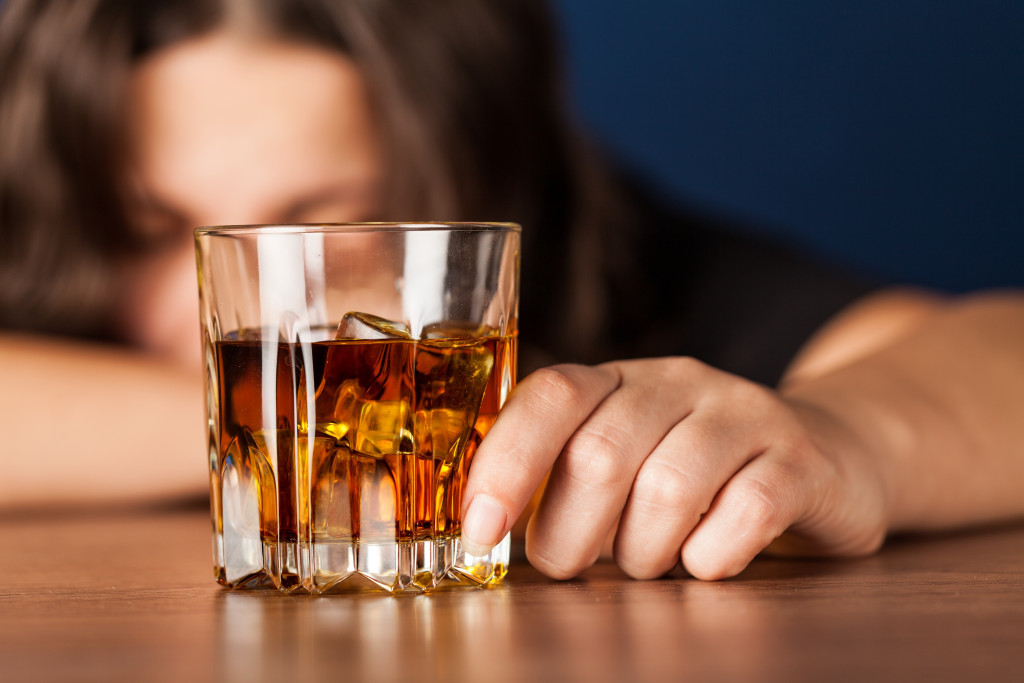Alcoholism is a disease, so overcoming it can be highly challenging. Here’s how you can get through that difficult process.
Get educated about detoxification and withdrawal.
If you’re ready to get sober, the next step is detoxification, which can be difficult but is crucial for kickstarting your recovery. It’s necessary to learn about alcohol detoxification and withdrawal so that you have an understanding of what will happen to you during the process. That way, your experience is as smooth and safe as possible.
How Long Does Alcohol Detoxification Last?
Detox typically lasts between five and seven days, although some people may experience symptoms for weeks or even months afterward. It’s important to remain under medical supervision during this time so that any withdrawal symptoms can be treated immediately.
What is Alcohol Withdrawal?
Alcohol withdrawal occurs when someone who has been drinking heavily suddenly stops or significantly decreases their alcohol consumption. The symptoms of alcohol withdrawal can range from mild to severe. They can include anxiety, shaking, sweating, nausea, vomiting, and hallucinations. In extreme cases, alcohol withdrawal can lead to seizures and delirium tremens (DT), a condition characterized by high fever, confusion, and agitation.
What Are the Stages of Alcohol Withdrawal?
There are generally three stages of alcohol withdrawal: early withdrawal, acute withdrawal, and post-acute withdrawal.
Early withdrawal typically occurs within 6-12 hours after someone stops drinking. Symptoms during this stage include anxiety, irritability, shakiness, sweating, nausea, and vomiting.
Acute withdrawal usually begins 24-48 hours after someone stops drinking and can last up to 5-7 days. Symptoms during this stage include increased heart rate and blood pressure and more severe symptoms experienced during early withdrawal, such as shaking, hallucinations, seizures, and DTs.
Post-acute withdrawal syndrome (PAWS) refers to the symptoms that occur after the acute phase of alcohol withdrawal has passed. PAWS symptoms can include anxiety, depression, irritability, insomnia, fatigue, and cravings for alcohol. These symptoms can last for weeks or even months after someone stops drinking.
Is the experience the same for everyone?
Everyone experiences alcohol withdrawal differently; just because your friend had a relatively easy time quitting doesn’t mean that you will too. Also, because every experience is unique, it’s necessary to be prepared for any and all possibilities.
That said, try to be patient with yourself. Recovery is a process, not a destination, and relapse is common. If you do slip up, don’t beat yourself up about it—get back on track and keep moving forward.

Take small steps to change your lifestyle.
When dealing with alcoholism, it’s important to take small steps because complete abstinence can be difficult to achieve. You may want to start small so that you don’t become overwhelmed. This can also help you stay motivated and make the process seem less daunting.
Recognize that you have a problem.
Denial is a major obstacle to recovery, so admitting that you have a problem is crucial. If you’re unsure if you have a problem, ask yourself if alcohol has ever caused problems.
Do you drink more than you’d like to? Do you black out regularly? Do you miss work or school due to drinking? Have your relationships suffered because of your drinking?
If you answered yes to these questions, it’s best to admit you have a problem.
Seek professional help.
There are many resources available to help you find the treatment that you need, like AA or Alcoholics Anonymous. This is a great place to start if you are looking for support from others who have been in your shoes. In addition, you can look into rehabilitation centers or programs if you are ready to get serious about overcoming your addiction. Also, remember that although it can be challenging to ask for help, it’s essential if you want to recover from alcoholism.
Get rid of triggers.
This means eliminating anything and everything that might trigger your addiction. It would help to avoid places where alcohol is served, such as bars or nightclubs. This way, it will be much easier to stay sober in the long run. Also, if you typically drink with friends, try suggesting activities that do not involve alcohol.
You might even consider changing social circles. This may seem drastic, but it’s often necessary to stay sober. After all, if all of your friends are drinkers, it will be tough to stay away from alcohol. Try spending more time with family or sober friends and less time with those who enable your drinking habits.
If you’re an alcoholic, it’s best for you to get informed about the process of detoxification and withdrawal and take small steps to change your lifestyle. Remember, with determination and effort, recovery is possible!

